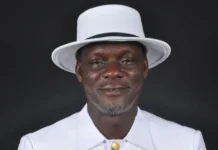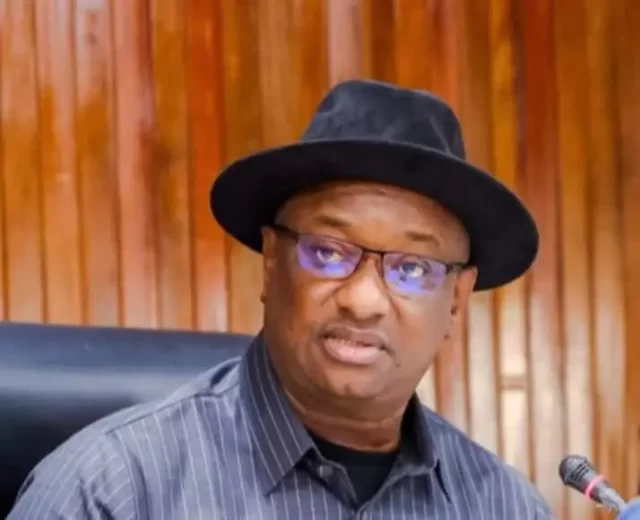By Abraham Ogbodo
The Academic Staff Union of Universities (ASUU) has its own idea of how public universities should be funded and operated and it has been saying this to government since it came in 1978 to replace the Nigerian Association of University Teachers (NAUT) which was formed in 1965. Government has persistently proved less able to comprehend and implement the fine ideas of ASUU regarding university education. This has created the basis for endless strike actions in public universities.
Painfully, ASUU has not discovered any other way of holding conversation with the government, hence it has issued another notice of strike in 2025. In each round of strike action by the university teachers, the same issues would be discussed, and almost the same agreement, in form and content, would be secured with the government. The next round would, however, begin on the ashes of the burnt hopes of the previous agreement. It has gone on this way since the business of Government/ASUU negotiations started decades ago.
On strikes by ASUU, Prof Attahiru Jega, who was the President of the union between 1990 and 1994, deserves a special mention. He, it was, who taught ASUU how to invest hope in strike actions. He had stayed the course to secure some reliefs for the university system in his time as ASUU’s President. Pay packets for teachers got enhanced. I guess what has become TETFUND (Tertiary Education Trust Fund) which started as Education Tax was one of the positive outcomes of the Jega long-drawn battle to get the Federal Government to attend to the many issues in the university system. The Jega’s success story was such that every ASUU President who came after him adopted strike as a key negotiating tool. As regime after regime consistently failed to implement previously reached agreements with ASUU, there was a corresponding determination on the part of the union to maintain strike actions as the only language to force government back to the agreements. This start-and-stop game between government and university teachers has played for decades without new outcomes.
In other words, ASUU has maintained an approach that has created more attrition than solution. At best, it has only attracted attention to itself as an indefatigable agitator and negotiator. This is where I disagree with the dons. While they see the inevitability of strike actions in resolving the great issues of the day, I see a futility that calls for flexibility. I am saying the university is designed for solutions, not suggestions. If the suggestion of strike actions to force governmental compliance in the matter of university funding has not produced a solution since 1978, the prospects that a continuation of the suggestion will offset the status quo for a better deal are indeed very slim. Results do not change from the application of the same variables.
The history is fairly tortuous. ASUU had gone on strike in 1988, leading to its proscription on August 7, 1988, by the military junta of Gen. Ibrahim Badamasi Babangida. The union returned in 1990 only to be proscribed again in August 1992 following another strike action. ASUU suspended its services for the same unresolved issues in 1994 and 1996. If we take it that civic engagement under the military had been uphill, it has become even more so between ASUU and government since 1999. Cumulatively, ASUU had gone on strike for some 42 months in 21 years; between 1999 and 2020, including a record nine months down time in 2020.
Evidently, strike action as a strategy has not done the magic. Yet, after the Prof. Jega prolonged and relatively result-yielding show, strike action became a defining feature of ASUU leadership. Government itself had become reconditioned by that fact to always breach agreements it had signed with ASUU, and then wait for the next strike action. I remember being invited to report a meeting of all Nigerian professors at the University of Benin sometime in the 90s. It was at the instance of Professor Ejovo Ohwovoriole, then Dean of the Faculty of Engineering of the University of Benin. It was in the Days of Gen. Sani Abacha, when nothing followed, laid down pattern, and ASUU was in an unending hide and seek game with government.
Prof. Ohwovoriole’s argument, which is the same that I am pushing here, is that no solution that is within human reach should task the collective will, capacity and capability of the university as a Citadel of Learning and an Ivory Tower. And that if strike was not working out a solution to the multi-faceted problems of university education in Nigeria, the best brains in the land should brainstorm to bring out a new approach that would lead to a definite solution. The meeting, however, did not hold for reasons that I cannot recount here. Almost 30 years after that failed attempt at charting a new thinking, the strike actions have not stopped and the solutions, also, have not come.
Perhaps, one suggestion that would have come out of that brain-storming session if it had held, would have been, the possibility of asking ASUU to work through its members in government to refract public policies in favour of university education. Let’s reason together at this point. Of the education ministers we have had since 1999, how many are university professors? Even under the military, professors were rightly deployed to man the education ministry as minister. I remember Prof. Jubril Aminu, who brought into the mix, Nomadic Education to care for itinerant Fulani herders. There was also Professor Babs Fafunwa (between 1990 and 1992) who pushed for local content, including teaching in mother tongue at the basic level, in policy formulation.
Overall, the participation of the academia in government has been robust enough to burst the boundaries and occasion a fusion between government and the gown. I am saying that in composition, it has become pretty difficult to say where the government stops and where ASUU begins. Creating a list to exhaust all the participants is difficult. Enough to say that nothing is hidden about what I am saying. There is Professor Ibrahim Gambari, who, after many years of upscale diplomatic professoring at the United Nations, returned to finish with President Mohammadu Buhari as Chief of Staff. In Nigeria, the Chief of Staff to the President is like an alternate President. Why was ASUU unable to use him to serve its purpose? Professor Jerry Gana, since the days of MAMSER, has been in the corridors and even inside the houses of power. Prof. Attahiru Jega himself became a major player in government as chairman of the Independent Electoral Commission (INEC) after his days in the trenches doing ASUU battles. Even now, he is acting on behalf of the Federal Government in some capacity.
The man at the INEC today, Prof. Mahmoud Yakubu is an ASUU member. Prof. Julius Ihonvbere, who is defined by protest scholarship, has been part of government since God knows when. In one of these ASUU-Government negotiations over non implementation of reached agreements by government, Prof. Ben Nwabueze of blessed memory had sat on the side of government as Secretary of Education. He told ASUU negotiators that their agreement with government in 1994 stood vitiated and not implementable because same was “extracted from a harassed government” by ASUU. There was the fiery Prof. Itse Sagay who advised late President Buhari on how to interpret the law to confuse both the legislature and the judiciary.
At the state level, the ASUU-government fusion is stronger. There have been more academics as governors and commissioners of education. More than this, there has always been this collaboration between ASUU and student activists for the same purpose of making the universities operate better. It is my pleasure to announce to you that the current President of the Senate, Senator Godswill Akpabio, was a student activist. I know that for sure because we were in the University of Calabar together and left the same year. The Senate Majority Leader, Senator Bamidele Opeyemi, was everywhere in his days at the University of Ife and Benin doing Aluta Continua. He has since secured victory for himself and backed out of the struggle.
Prof. Jubril Aminu needs a little more elaboration. Among the lot, he parades the best credentials. He had traversed all the critical sectors without impacting in the sense that we are talking about here. He was Vice Chancellor of the University of Maiduguri between 1980 and 1985. Before then, he had held sway at the National Universities Commission (NUC) as Executive Secretary. Both stations put him in a stead to appreciate all the downstream issues of the university system in Nigeria. He pushed upstream to become the Minister of Education in the late 80s. He veered into the money zone of Petroleum and Mineral Resources Ministry as minister. He picked his way through the politics of the Organisation of Petroleum Exporting Countries (OPEC) to become the president of the Arab dominated international oil cartel. He was also Nigerian Ambassador to United States of America. Finally, Prof. Jubril Aminu had anchored in the midstream as a Senator representing Adamawa Central in the Senate from 2003 to 2011 and during when he was privileged to combine his downstream and upstream experiences to facilitate laws to create a paradigm shift in university education funding and save ASUU the embarrassment of incessant strike actions like textile factory workers. That did not happen until the iconic Professor of Medicine ran his course as a consequential factor in public policy formulation in Nigeria.
In the law of agency, the agent, no matter the size of his mandate, does not equate the principal. We can stretch that to say these academics in government are agents who do not approximate the principal. Only the President or Governor may qualify as principal in the matter under review. To that extent, we may go ahead to excuse the failings of these academics in government in respect of the ASUU matter. They do not have the final say. This could pass for a cogent argument to relieve ASUU of responsibility. But this was before the advent of Umaru Musa Yar’Adua, Dr. Goodluck Jonathan and Prof. Yemi Osinbanjo in Aso Rock Villa. The trio as Presidents and Commanders-in-Chief and as Vice President could stand as principals in the ASUU-Government perennial engagements on how to make universities operate better to meet the needs of society. But lo and behold, these three principals also failed woefully! I don’t want to mention academics that have occupied Government Houses as Governors.
ASUU as subordinates and ASUU as principals in government could not get government to listen to it. Something must, therefore, be wrong somewhere. Which other powers and principalities are required to balance the equation? And I can attempt to say what is wrong. ASUU needs more than cash to hit target. It needs character, too. Character and competence must combine in proportionate measures to create sustainable value. Competence is the totality of the intellection, including artistry and creativity that gives an edge. Character is the spirituality to enforce competence in the right direction and for the overall good. Competence without character is evil ingenuity. All the issues between government and ASUU that manifest in failed agreements and endless strikes can be reduced to one word: (lack of) CHARACTER on both sides. When the opportunities to fix things are presented, the character to act will be lacking. That has been the story of ASUU and Government.


























